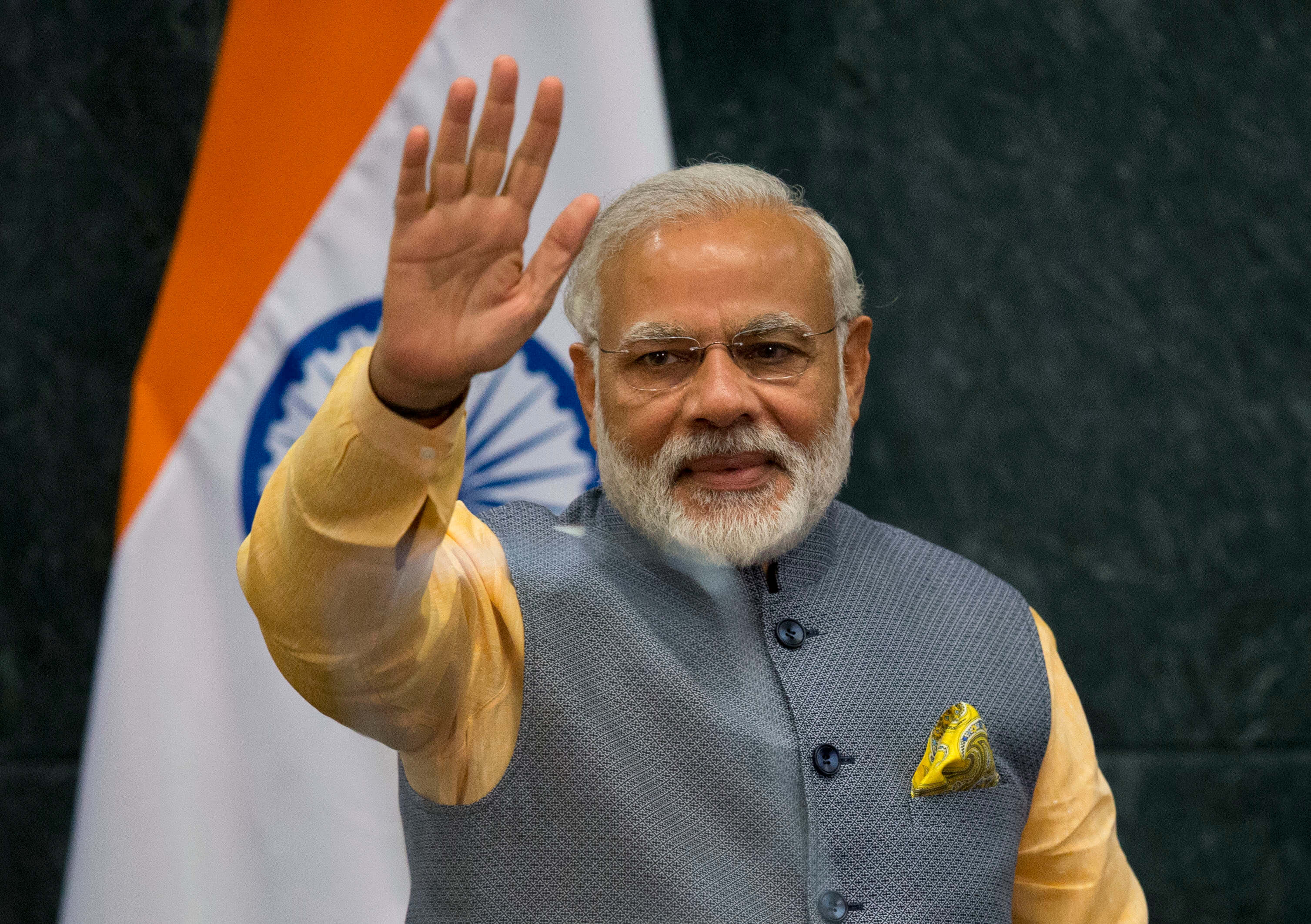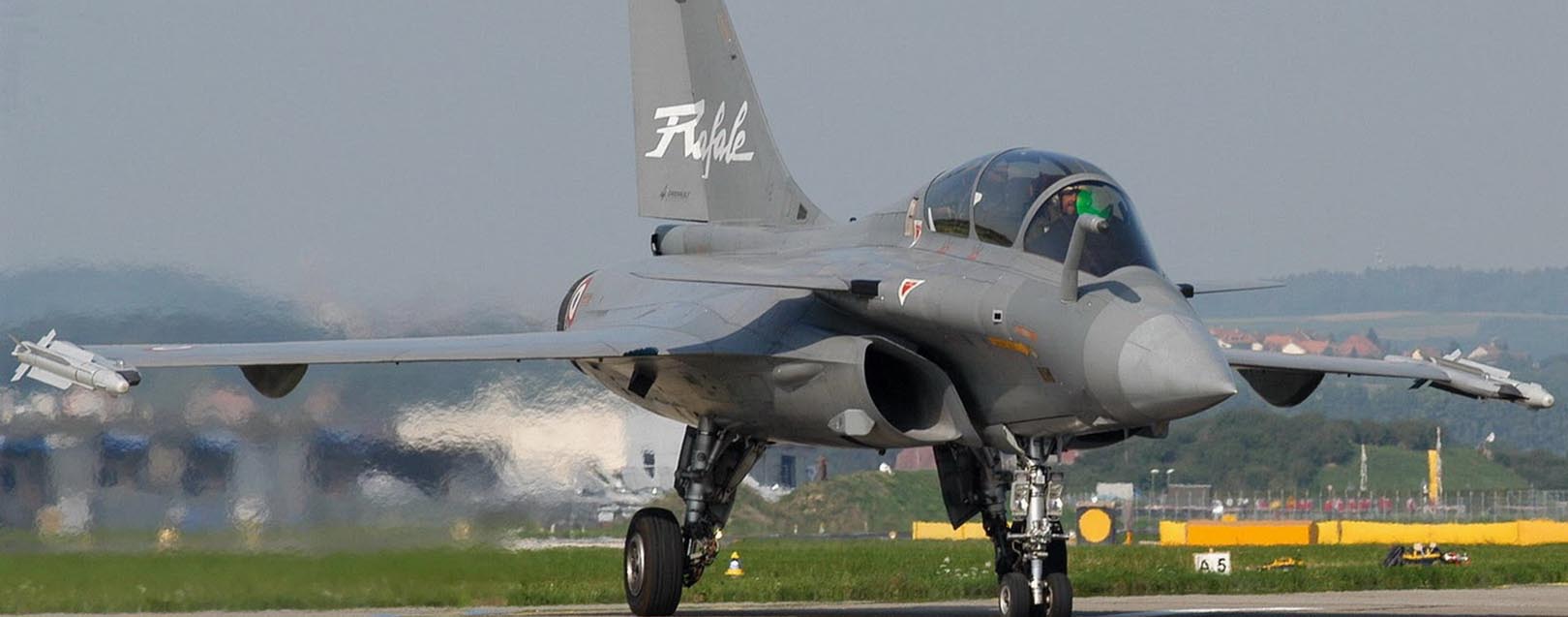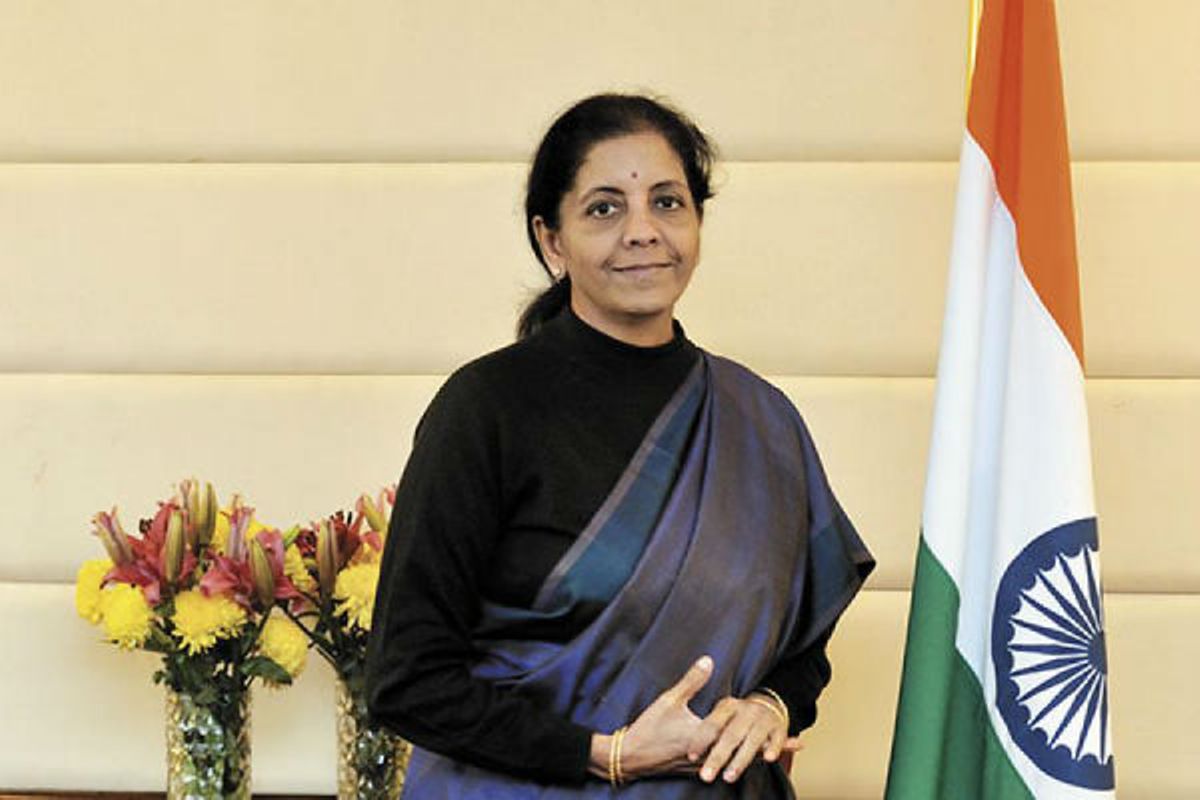
Prime Minister Narendra Modi announced in April 2015 that India will buy 36 French-manufactured Rafale fighter jets off-the-shelf from Dassault Aviation, the French aircraft builder and integrator. It may be noted here that India needs fighter jets to upgrade its ageing fleet.
However, the previous Manmohan Singh government’s plan was to buy 18 off-the-shelf jets from Dassault, with 108 others to be assembled in India by the state-run Hindustan Aeronautics Limited (HAL) in Bengaluru. The deal fell through after nearly decade-long negotiations between India and France during the previous government as the Modi government said the planes would be too expensive. Prime Minister Modi, hence, decided to buy 36 ready-to-fly fighters.
In September 2016, India signed an inter-governmental agreement with France, dubbed as Rafale deal, in which India will pay about Rs 58,000 crore or 7.8 billion euros for 36 off-the-shelf Dassault Rafale twin-engine fighters. About 15 per cent of this cost will be paid in advance.
Besides, an accompanying offset clause was sealed through which France will invest 30 per cent of the 7.8 billion euros in India’s military aeronautics-related research programmes and 20 per cent into local production of Rafale components.
Dassault and its main partners, engine-maker Safran and electronic systems-maker Thales, will share some technology with the Defence Research and Development Organisation (DRDO), HAL and some private sector companies under the offsets clause. Under the deal, India will also get spares and weaponry, including the Meteor missile, considered among the most advanced in the world.
The Rafale deal is likely to bring major work to the Indian private sector in terms of offsets under the Make in India initiative. The deal includes more than three billion euros of work for the Indian industry over the next seven to eight years. This has a huge potential to develop direct and indirect employment opportunities in India. Besides high end technology like engine know-how, major structural assembly is also likely in India, besides a chunk of avionics work. India will also get latest weapons like the Meteor and Scalp missiles as part of the deal, besides a five-year support package that assures high availability of the fighter.

According to the deal, India will get 28 single seater jets and eight twin seaters for training. All aircraft ordered will be delivered within 67 months. Deliveries will start in three years.
INDIA-SPECIFIC ENHANCEMENTS
The twin-engine Rafale combat jet, designed from the beginning as a multi-role fighter for air-to-air and air-to-ground attack, is nuclear-capable, and its on-board electronic warfare systems can perform reconnaissance and radar jamming roles.
The Rafale fighters cater to specific needs of the Indian Air Force. The jets, which will be modified by France to meet India’s requirements, are able to take off from high altitude airbases like Leh on a ‘cold start’ for quick reaction deployment.
India has managed to negotiate the acquisition of the latest weapons package for the Rafale. These new weapons, beyond the standard package, include Scalp that is a precision long range ground attack missile that can hit the target with extreme accuracy and has a range of 300 km, capped by the missile technology control regime. The new weapons also include Meteor, which is a beyond visual range air-to-air missile that is possibly the best in its class. It can hit the enemy aircraft at a range of more than 100 km.
CONTROVERSY
A political warfare began over the Rafale deal in November 2016 when the Congress party accused the Modi government of causing “insurmountable loss” of taxpayers’ money by signing the deal. It also claimed that the Reliance Defence Limited owned by Indian businessman Anil Ambani had been unfairly picked to be the French firm’s Indian partner. The Congress alleged that the cost of each aircraft is three times more than what the previous UPA government had negotiated with France in 2012.
Congress president Rahul Gandhi attacked the Modi government for inking the deal at a much higher price than the one the UPA government had negotiated. Accusing the government of changing the deal to benefit one businessman, Rahul demanded setting up of a joint parliamentary committee on the Rafale jet deal.
Targeting the central government on the deal, the Congress party accused the Modi government of ignoring the national interest and catering only to its self-interest. “Rafale is a scam and the government is in scam. Indians feel deprived while the BJP ensured that crony capitalism thrived. Instead of protecting India’s interest we have the Modi Sarkar protecting their self-interests,” Congress spokesperson Priyanka Chaturvedi said in a statement.
“The prime minister announced off-the-shelf purchase of 36 Rafale aircraft in Paris on April 10, 2015 for euro 7.5 billion (Rs 1670.70 crore per aircraft which is Rs 60,145 crore for 36 aircraft),” Chaturvedi said.

BJP president Amit Shah rejected the allegations of corruption in the deal, saying credence should be given to Defence Minister Nirmala Sitharaman’s statement. Shah said Sitharaman has said the base price of Rafale fighters negotiated by the government is less than what was finalised by the UPA government.
The Congress leader, however, said when the international bid opened on December 12, 2012 for Rafale jets, the price negotiated by the UPA government was Rs 526.10 crore per aircraft for 126 aircraft. As per the UPA deal, the price of 36 aircraft would have been Rs 18,940 crore. She demanded an explanation on why an extra amount of Rs 41,205 crore of the public money is being paid for the jets. She claimed that by announcing the deal in 2015, Modi had violated the mandatory “Defence Procurement Procedure”.
CLARIFICATION
Anil Ambani’s Reliance Group has said it received the Rafale deal from Dassault Aviation and not from the defence ministry. “Reliance Defence or any other Reliance group company has not received any contract from the MoD till date, related to 36 Rafale aircraft. This is absolutely unfounded and incorrect,” said Reliance Defence Ltd chief executive Rajesh Dhingra. He said the French aviation firm chose Reliance Defence to meet its “offset” or export obligation in the contract and that the defence ministry has no role in the selection of Indian partners by the foreign vendors.
Dhingra said the government-to-government deal requires all 36 Rafale fighter jets to be delivered in a “fly-away” condition, which means “they are to be exported from France by Dassault” and “HAL or anyone else cannot be the production agency for the simple reason that no aircraft are to be produced in India”. He said HAL was a nominated production agency for the 126 medium multi-role combat aircraft plans, which never reached the contract stage.
On allegations of Reliance Defence getting the contract because of Ambani’s reported proximity with Prime Minister Modi, Dhingra said: “As per the defence procurement procedure (DPP), ministry of defence has no role in the selection of Indian partners by the foreign vendors. This has been the position right from 2005 when offsets were first introduced in the country.” In the more than 50 offset (export obligations) contracts signed in the country till date, the same process has been followed, he said. “Therefore, this is a deliberate attempt to mislead people and cloud the issue.”
On the issue about lack of experience in making fighter jets, Dhingra said no company in India, except HAL, has the experience of making fighter planes. “This would mean that we will never create any new capability beyond what exists and will continue to import more than 70 per cent of our defence hardware,” said the Reliance Defence CEO.
Dhingra said the Reliance Defence will participate in the offset programme through Dassault Reliance Aerospace Ltd in which Dassault holds a 49 per cent stake bringing in its 90 years of aerospace manufacturing experience.
He termed as “absolutely wrong” the allegations of Reliance Group benefiting with a Rs 30,000 crore contract. “Dassault’s share of offsets is about 25 per cent, with the remaining offset obligations being shared by Thales, Safran, MBDA and others. Therefore, the basic premise of Dassault giving Rs 30,000 crore worth of offset contracts to Reliance is totally unfounded.” Dassault has indicated that more than 100 Indian companies which will participate in the offset contracts, he said.
When asked about Reliance Defence being incorporated days before announcement of the Rafale deal, Dhingra said three companies were incorporated in December 2014 and Reliance Group’s entry into defence sector was announced at Aero India in February 2015.
When asked about Anil Ambani’s presence in France when Modi signed the Rafale deal with France in April 2015, Dhingra said the Reliance Group chairman is part of the CEOs’ Forum for France and also many other countries. “He (Anil Ambani) was in Paris because there was a meeting of the CEOs’ Forum on the sidelines of the prime minister’s visit. More than 25 other CEOs from the Indian companies were also present, including the Chairman of HAL,” Dhingra said.

On the issue of defence minister Nirmala Sitharaman denying knowledge of the contract, Dhingra said according to DPP 2016, the foreign vendor has a choice to submit the details of its offset partners at the time of claiming offset credits. “In this case, offset obligations are due only after September 2019. It is, therefore, possible that the Ministry of Defence has no formal communication from Dassault Aviation about the choice of its partners for the offsets,” Dhingra said.
When asked whether it was correct that under DPP, a joint secretary-level official is required to countersign the contract, Dhingra said: “The offset contract is signed between the MoD and the foreign vendor. The MoD does not sign any contract with the Indian offset partners.”
Defence Minister Sitharaman has said that the renegotiated deal was transparent and better than the deal negotiated by the previous UPA government as it includes a superior weapons package and logistical support, which had been absent in the previous one. Sitharaman told Parliament that the details of the deal cannot be disclosed as per the inter-governmental agreement as it is “classified information”.
The Modi government must not create another blood feud as has happened in most of the defence deals in India by arrogantly refusing to discuss the price even with a parliamentary committee, or be transparent with the Rafale purchase. It’s repeating the mistake Rajiv Gandhi made with Bofors. It lost him his government. Governments change but the nation’s military needs don’t.
It is for the Modi government to prevent Rafale from becoming another Bofors. It should begin demystifying defence purchases. Many myths need breaking. We are impressed when told that we are the world’s largest arms importers. But it looks different when you are reminded that we are the fourth largest military, and the top three the US, Russia and China, do not import much, while we produce too little.








